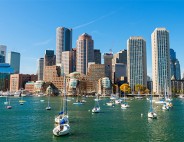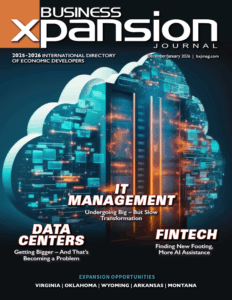Massachusetts’ No. 1 Asset is its Talent
04 Jan, 2013
By Rachel Duran
Massachusetts’ economic development officials say the state is a place where businesses are able to attract and retain talented employees for long term business success. “Whether they are in the innovation economy or otherwise, the companies that are here are people-oriented businesses,” says Greg Bialecki, secretary, Massachusetts Department of Housing and Economic Development. “They value our great education system and they value the fact that our 351 cities and towns do well on quality of life in almost all of the national rankings.”
Bialecki and his team are focused on two major initiatives; promoting the strengths of the innovation economy, and raising the business climate profile of communities located outside of the Boston metro.
The knowledge-based economy is driven by the research conducted in the state’s university hospitals, and technology companies in different industry sectors. “This is a set of companies that are by and large focused in the Boston area,” Bialecki says. “Historically, we have a reputation for this and we have strategies to build on that advantage.”
One strategy involves ensuring entrepreneurs remain in the state once they are ready to graduate from the startup stage and grow to scale. Efforts include ensuring these innovative companies have access to capital, as well as the talent pool to support their operations when they require hundreds of employees as opposed to a handful of staff members.
Through public and private partnership efforts such as the annual MassChallenge, entrepreneurs gain exposure to venture capital and to business mentors and coaches. Bialecki’s department was a co-sponsor of the challenge, along with several other private and public partners. The challenge is a business plan and accelerator competition where companies from around the country and around the world are invited to participate. In the most recent competition, 125 teams were selected from 1,000 applications to work with each other and business mentors for four months. The winners of the competition shared $1 million in cash prizes. “By being exposed to the venture capital community they have received 10s of millions of dollars in private funding,” Bialecki adds.
Promoting the business climate advantages of manufacturing in the state is also part of the strategy to ensure startup firms grow their businesses in the state. For example, life sciences companies, medical device companies and other industries will start their firms in Massachusetts in order to tap into the R&D synergies; however, once they earn approvals from the FDA for a drug or device or other product, these companies would look elsewhere for manufacturing activities. Bialecki says officials have been successful in getting businesses to understand the state offers a competitive advantage for the manufacture of products. As an example, biosciences manufacturing facilities have made major investments in the state in the last few years.
“The perception of the cost profile of Massachusetts and the general impressions is that the state is not an obvious choice for manufacturing operations,” Bialecki says. “We have worked hard to talk about the cost advantages of other regions [outside of Boston] of the state.”
Industries and Innovations
Massachusetts has a history of innovation, including its major role in the nation’s Industrial Revolution. The innovation that occurred at the state’s former mills segued into the state becoming one of the nation’s leading regions for today’s research centers and knowledge-based activities.
According the MassEcon.com website, the state’s industry clusters of strength include: clean energy; creative economy; defense technology; financial services; information technologies; life sciences; manufacturing, and marine sciences.
Economic development officials have been successful in getting Fortune 500 companies to consider, for example, a western Massachusetts location for activities such as back office, manufacturing facilities and business units that they probably wouldn’t want to open in Greater Boston, Bialecki says.
Springfield is the largest city in western Massachusetts, and its 30 mile location north of Hartford, Conn., has lent itself to the formation of a regional effort known as the Knowledge Corridor. The region features several higher education institutions, a medical school and a market of nearly 2 million people.
Talent and Education
Bialecki says if you are involved in the innovation economy and are looking for a U.S. East Coast location, Massachusetts is the place to be. Greater Boston has seen the growth of local, regional and international innovation economy companies.
Posted at www.massecon.com are highlights of the Massachusetts Innovation Economy, including: Massachusetts is tied for first place (with California) in patents per capita; the state invests more than 5 percent of its GSP in R&D, the best performance of any single region in the world; and, the state’s small businesses rank first per capita in winning federal Small Business Innovation Research contracts.
“We are growing and solidifying that reputation,” Bialecki says. European companies looking to develop a significant U.S. presence are selecting Massachusetts as a place to do business. “Particularly in the life sciences area; we have seen many of the biggest names in life sciences in Europe take major positions or significantly grow their positions in the last five years in Massachusetts,” he says.
State officials have also undertaken trade missions, including a trip to Israel, which has attracted eight Israeli firms to the state in the last year and a half.
Moving to the state’s Cape Cod region, an emerging marine sciences industry is taking hold thanks to the anchor of the Woods Hole Oceanographic Institute in Falmouth. The cape is well known for its tourism sector. Another large cluster consists of second homeowners, followed by health care.
Most of the marine science and technology activities are located in Falmouth and Bourne, which are two gateway towns to the cape. “The upper cape, which is near the canal, is more oriented toward the mainland and has a lot of commuters going back and forth,” says Leslie Richardson, chief economic development officer, Cape Cod Commission. “The outer cape, closer to Provincetown, is more tourist based.”
Recently, two companies have spun off from the activities underway at the Woods Hole Oceanographic Institute: Hydroid Inc., a wholly-owned subsidiary of Kongsberg Maritime, a manufacturer of autonomous underwater vehicles; and Teledyne Benthos, a manufacturer of undersea systems and equipment.
“We are working with them to move forward because we are a regulatory agency as well as a planning agency,” Richardson says. “We want to make regional permitting as clear as possible while protecting our environment. As a tourism economy we have to protect the historic structure of the cape as well as the natural environment of the cape. It is our niche and also our best asset in bringing intellectual capital here, people opening businesses here, and people starting second careers here.”
Assets
Cape Cod’s officials also strive to make the development process as smooth as possible, utilizing regulatory tools called growth incentive zones. One applies to downtown Hyannis; the other to Buzzards Bay.
These are areas where businesses aren’t required to go through a regional review, or through a commission review, Richardson notes. “It reduces regulatory oversight,” she says.
Back at the state level, Massachusetts has a reputation as being an expensive location for real estate. “To the extent that it is true, it is truer about the Greater Boston area,” Bialecki says. In fact, 50 miles outside of downtown Boston, the state features a talented workforce and a lower cost profile.
One of those cost-efficient communities is Leominster, located in north-central Massachusetts. The community has a long history in manufacturing industries, and today has a large cluster of plastics manufacturers and recyclers, as well as a diverse base of industries that come as a result of 150 years of manufacturing knowledge and training.
Leominster also has three shovel-ready industrial parks, which feature affordable infrastructure. Leominster doesn’t get the credit it deserves says Mayor Dean Mazzarella. He says the city is one of the best managed cities in the state, with reasonable costs for permits and other fees. He also notes the city features an ample water supply to support industries’ needs. What’s more, the community doesn’t come with long commute patterns found in other areas, where employees are sitting in traffic for hours. “Employees sitting in traffic don’t increase productivity,” Mazzarella says, adding it takes minutes to commute in his area.
Leominster is also far from being “out in the woods,” Mazzarella says. “We are situated next to major highways, minutes from Worcester, and an hour from Boston. I think that is why this community has become an attractive business community. Your chances of success are greater here, the workforce is dedicated and hardworking, and your costs of business are lower.”
Lifestyle
Mazzarella notes that in addition to short commute times, the quality of life amenities in Leominster features thousands of acres of land and open space, as well as a city owned apple orchard.
In regard to continuing education opportunities, the Leominster region provides access to a career center and three higher education institutions.
On Cape Cod, educational institutions include the Massachusetts Maritime Academy, which is a four-year college, Cape Cod Community College, and a public school system featuring several of the state’s top ranked schools.
Cape Cod’s officials are underway with installing a middle-mile communications network, called OpenCape. The project, which is scheduled for completion this spring, was the result of a grant of $32 million from the Broadband Technology Opportunity program. Matching funds of $8 million were also raised to support the effort to provide high-speed Internet services to businesses and residents.
Area officials are also working on a project to set up incubator spaces, as well as innovation zones, which would encourage live-work opportunities.
“We are trying to position ourselves as a place where people can be creative and innovative,” Richardson says. “We have the technology that is necessary to connect to the rest of the world. At the same time, you can be in a place with a high quality of life, excellent schools, and historic character you can’t find in many places.”
For complete details on conducting business in Massachusetts, visit:
Massachusetts Department of Housing and Economic Development
Massachusetts Alliance for Economic Development
Illustration by samarttiw at Free Digital Photos.net













